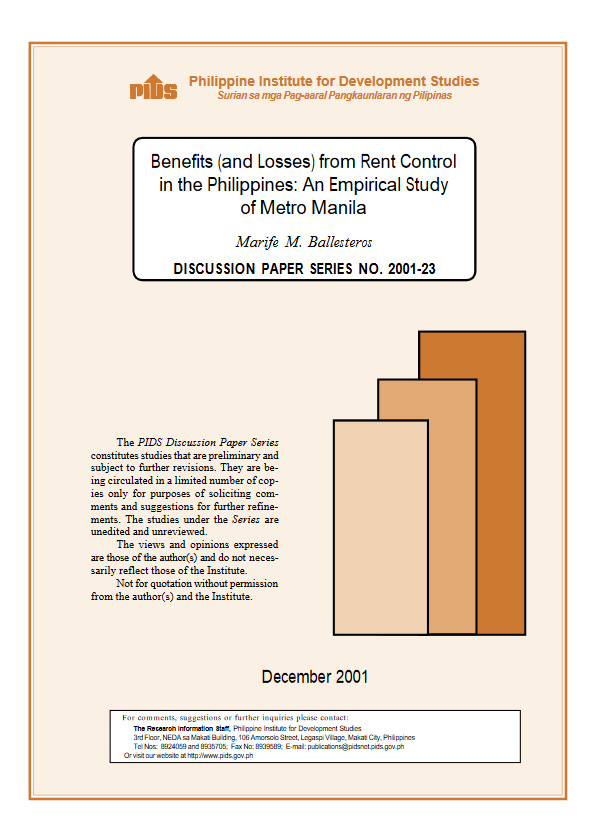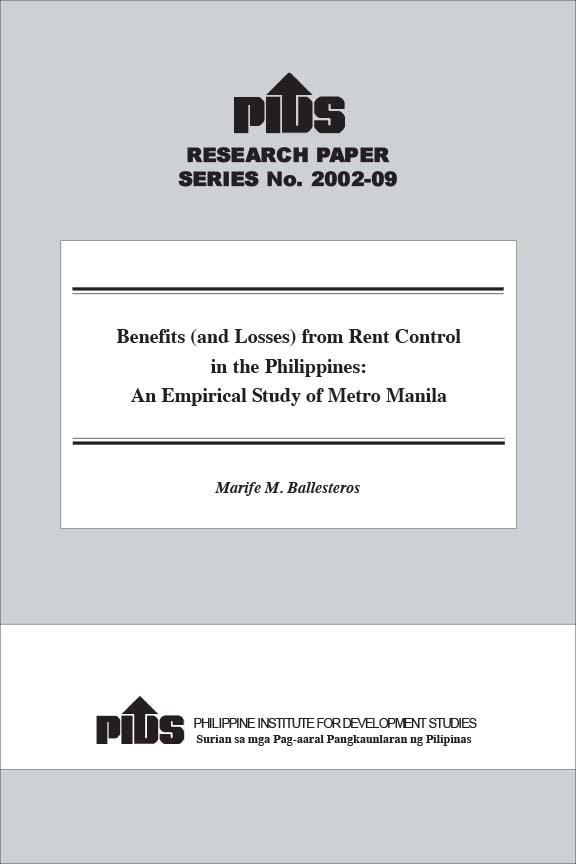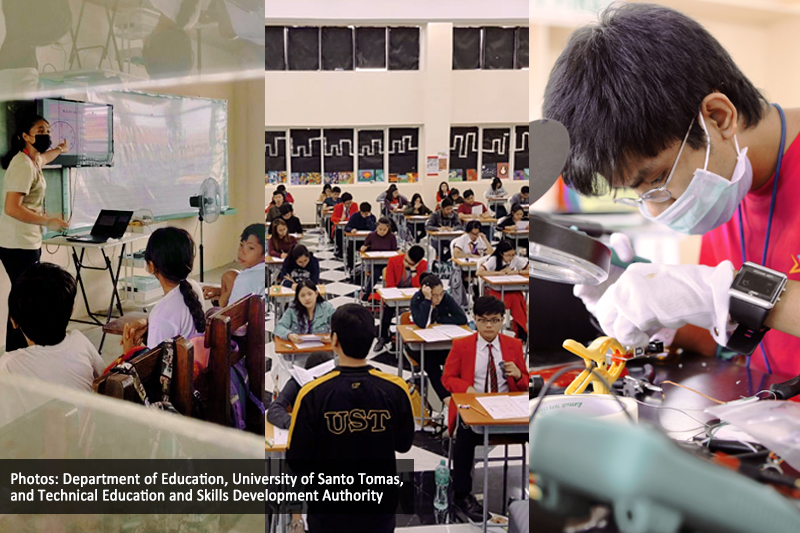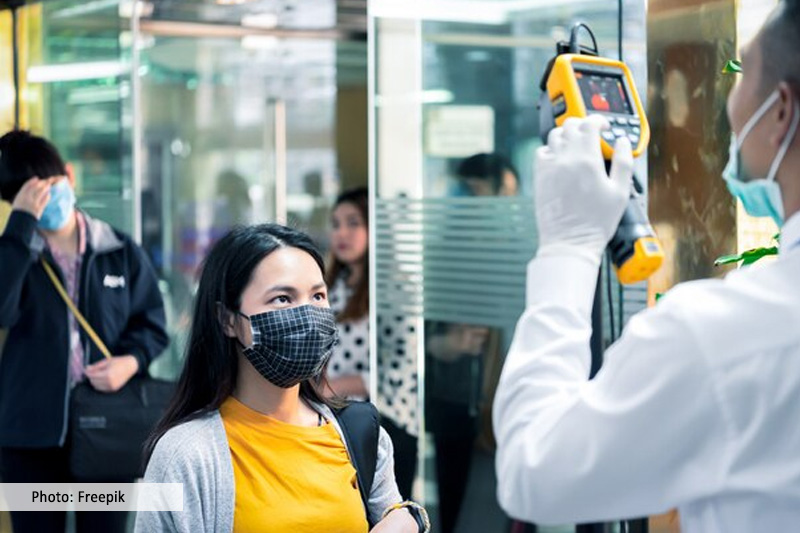According to the state-owned think tank, the transport, storage and communication businesses will absorb the strongest backlash from the pandemic.
Whatever the outcome of the enhanced community quarantine (ECQ) that was extended until the end of the month, the economy will suffer a major hit with estimated losses of at least P276.3 billion in a best-case scenario and a spiral of P2.5 trillion if the coronavirus disease 2019 infection gets out of hand, according to a study undertaken by the Philippine Institute for Development Studies (PIDS).
According to the state-owned think tank, the transport, storage and communication businesses will absorb the strongest backlash from the pandemic as these sectors are expected to suffer substantial losses due to the expected declines in tourism of from P11.7 billion to 124.3 billion.
Other sectors, particularly services are expected to incur P41.5 billion to P356.9 billion income reduction; manufacturing, down P82.1 to P855.2 billion and wholesale and retail trade from P93.2 billion to 724.8-billion are projected to also be significantly negatively affected as a result of weaker global and domestic demand.
ECQ not cure all
The research indicated that imposing community-wide quarantine alone may not be enough to sufficiently flatten the epidemic curve and avert substantial economic losses.
It also suggested that extending the isolation policy may increase economic losses if the same non-medical mitigation measure is implemented.
“Extending the Luzon-wide community quarantine by one month is projected to result in at least P150 billion-worth in foregone economic activity based on our projection assumptions,” PIDS estimate showed.
It added the cost of inaction may be larger, however. In a no-intervention scenario, the Philippines may lose about P2 trillion in foregone gross value added due to weaker household demand as more workers are unemployed for extended periods.
According to the PIDS paper, the goal of the government should not be solely confined to “flattening” the epidemic curve but also to limit prolonged disruptions in the economy.
“A key step towards this direction, of course, is to control the spread of the epidemic. Even during epidemics, the government should ensure that critical goods and services remain available, affordable and accessible,” it noted.
The study suggests the national government to be ready to deploy a massive safety nets program to ensure households have access to food and other basic necessities.
However, the interventions do not need to be confined to the poor, displaced workers and other at-risk population, but also to firms, particularly micro-, small- and medium-sized enterprises.
It added that safety net programs may be used to ensure that households are not unnecessarily induced to continue working for their sustenance during epidemics.
Congress, nonetheless, had implemented a social rescue program that alloted P200 billion in cash assistance to poor families which will be given from P5,000 to P8,000 each under the scheme.
“Based on current infection rates and costs of treatment, it may be more cost-effective to incentivize people to stay at home,” according to the study.
Revitalize activity
The national government must also prioritize revitalizing economic activity without endangering public safety, according to PIDS.
“The national government must also allow public transportation to partially operate, subject to strict physical distancing guidelines, to facilitate the movement of essential economic transactions. The government may opt to directly hire drivers or operators in a cash-for-work program to effectively control public transportation,” according to the study.
Lastly, the think tank suggests the government must ensure supply chains remain operational.
“Ensuring the continuous and unencumbered flow of goods and services is crucial during these times. While social distancing measures are necessary, it need not be counter to ensuring that necessary supplies are delivered. Fast lanes for food, health personnel, medical supplies, and many others need to be established and safeguarded,” it averred.
Whatever the outcome of the enhanced community quarantine (ECQ) that was extended until the end of the month, the economy will suffer a major hit with estimated losses of at least P276.3 billion in a best-case scenario and a spiral of P2.5 trillion if the coronavirus disease 2019 infection gets out of hand, according to a study undertaken by the Philippine Institute for Development Studies (PIDS).
According to the state-owned think tank, the transport, storage and communication businesses will absorb the strongest backlash from the pandemic as these sectors are expected to suffer substantial losses due to the expected declines in tourism of from P11.7 billion to 124.3 billion.
Other sectors, particularly services are expected to incur P41.5 billion to P356.9 billion income reduction; manufacturing, down P82.1 to P855.2 billion and wholesale and retail trade from P93.2 billion to 724.8-billion are projected to also be significantly negatively affected as a result of weaker global and domestic demand.
ECQ not cure all
The research indicated that imposing community-wide quarantine alone may not be enough to sufficiently flatten the epidemic curve and avert substantial economic losses.
It also suggested that extending the isolation policy may increase economic losses if the same non-medical mitigation measure is implemented.
“Extending the Luzon-wide community quarantine by one month is projected to result in at least P150 billion-worth in foregone economic activity based on our projection assumptions,” PIDS estimate showed.
It added the cost of inaction may be larger, however. In a no-intervention scenario, the Philippines may lose about P2 trillion in foregone gross value added due to weaker household demand as more workers are unemployed for extended periods.
According to the PIDS paper, the goal of the government should not be solely confined to “flattening” the epidemic curve but also to limit prolonged disruptions in the economy.
“A key step towards this direction, of course, is to control the spread of the epidemic. Even during epidemics, the government should ensure that critical goods and services remain available, affordable and accessible,” it noted.
The study suggests the national government to be ready to deploy a massive safety nets program to ensure households have access to food and other basic necessities.
However, the interventions do not need to be confined to the poor, displaced workers and other at-risk population, but also to firms, particularly micro-, small- and medium-sized enterprises.
It added that safety net programs may be used to ensure that households are not unnecessarily induced to continue working for their sustenance during epidemics.
Congress, nonetheless, had implemented a social rescue program that alloted P200 billion in cash assistance to poor families which will be given from P5,000 to P8,000 each under the scheme.
“Based on current infection rates and costs of treatment, it may be more cost-effective to incentivize people to stay at home,” according to the study.
Revitalize activity
The national government must also prioritize revitalizing economic activity without endangering public safety, according to PIDS.
“The national government must also allow public transportation to partially operate, subject to strict physical distancing guidelines, to facilitate the movement of essential economic transactions. The government may opt to directly hire drivers or operators in a cash-for-work program to effectively control public transportation,” according to the study.
Lastly, the think tank suggests the government must ensure supply chains remain operational.
“Ensuring the continuous and unencumbered flow of goods and services is crucial during these times. While social distancing measures are necessary, it need not be counter to ensuring that necessary supplies are delivered. Fast lanes for food, health personnel, medical supplies, and many others need to be established and safeguarded,” it averred.






